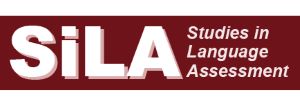The effect of in-class and one-on-one video feedback on EFL learners’ English public speaking competency and anxiety
Tingting Liu, Sichuan International Studies University, National Institute of Education, Nanyang Technological University
Vahid Aryadoust, National Institute of Education, Nanyang Technological University
Vahid Aryadoust, National Institute of Education, Nanyang Technological University
|
https://doi.org/10.58379/MTUM3193
|
Volume 11, Issue 2, 2022
|
Abstract: Video feedback (VF) is a useful learning technique in acquiring public speaking skills due to its capacity to retain both verbal and non-verbal elements of multimodal communication. Previous research has focused on video self-critique, peer VF, online feedback, or one-on-one VF in the first language (L1) context and has yielded varied results regarding the impact of VF on public speaking competence and anxiety. Therefore, this quasi-experimental classroom-based study compared the impact of the one-on-one VF and in-class VF on public speaking competency and anxiety of learners of English as a Foreign Language (EFL). Three intact university-level English classes in China (n = 74) were assigned to the three conditions (in-class VF, one-on-one VF, and verbal feedback). Data on students’ speaking competence were validated using many-facet Rasch measurement (MFRM). Subsequent gain score analysis and ANCOVA showed that in-class VF significantly improved students’ delivery skill and global competence and reduced their speaking anxiety compared with the verbal feedback group. It is proposed that in-class VF be employed as an instructional procedure to help EFL learners improve their public speaking skills and reduce their public speaking anxiety, particularly in the teaching context of a large class size together with comparatively limited logistic and teaching resources.
Keywords: public speaking competency; public speaking anxiety (PSA); video feedback; formative assessment; oral presentation; many-facet Rasch measurement (MFRM)
